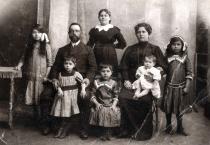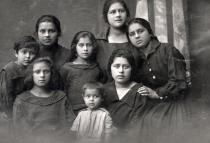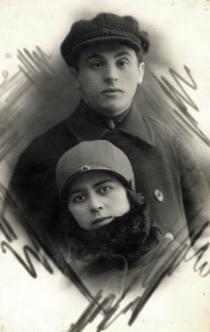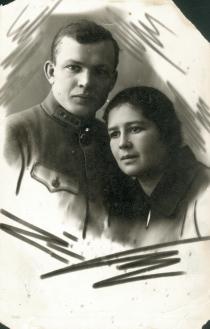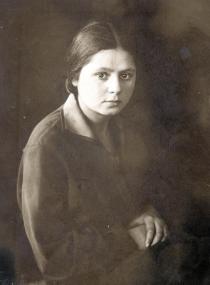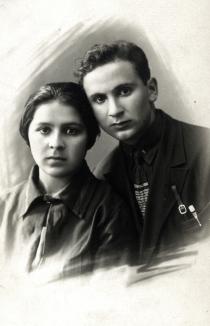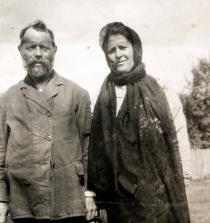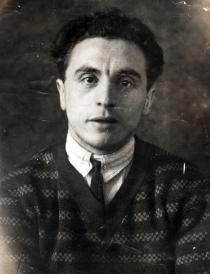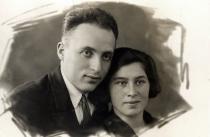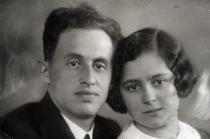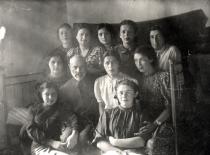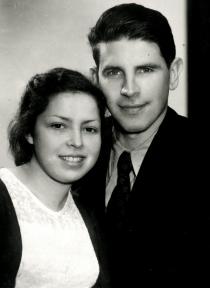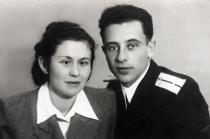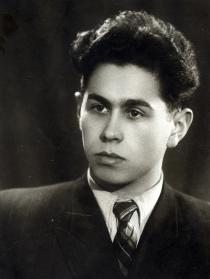This is my mother, Berta Oliker, with her husband and my father, Boris Oliker.
The picture was taken in Minsk in 1926. Mother is 24 years old, father is 25, they have been married for a year. In a year, in 1927, their first child (me) was born.
In 1936 my father was arrested. In exile he met another woman and started to live with her. After more than ten years of exile and imprisonment, he never came back to my mother.
My mother was born in 1902 in the town of Slutsk in Belarus. She was the second daughter in the family and helped her parents with the household and in the vegetable garden.
She was Grandmother’s right hand and helped to look after the younger children. She read a lot and was well-educated. She was the first to pave the way to education before the Revolution, as she decided to study in a gymnasium, not in cheder.
Grandmother, unlike Grandfather, understood the necessity of her daughters’ education, supported my mother and Mother finished a gymnasium in Slutsk. After that she moved to Minsk and entered the Minsk Public University, the Faculty of Economics, and graduated in 1925.
She married my father, Boris Oliker, who had graduated from the Medical Institute in Minsk and worked as a surgeon. I don’t know exactly how my parents met, but I know that they didn’t celebrate their wedding, they just registered their marriage; it was a custom to do so in big cities.
Mother found a job as an economist-planner at Gosplan [state economic planning institution] of Belarus. In 1927 I was born and in 1935 my brother Ernst was born.
We had an intellectual Soviet family: my parents had university education and worked in their professional field; Father was a public party activist – unfortunately I was too small at that time to take interest in it, and later my father didn’t tell me about it, so I can’t give you more details – religion was out of the question.
We lived in a small apartment in downtown Minsk. Father had a big library: mostly they were medical books, the Communist Party history, Russian classics, but it was all lost in the Great Patriotic War, because we left the city without any of our belongings.
I’ve seen little of my father, first he was mostly engaged with his public party work after his main work as a surgeon, and he came home very late. I was placed in a kindergarten early, because my parents had to work and they didn’t hire any nannies or maids.
Later I went to a Soviet high school, and in summer I stayed at children’s summer camps in the suburbs of Minsk. We also spent Mother’s vacation in Leningrad, at her sisters’ place.

